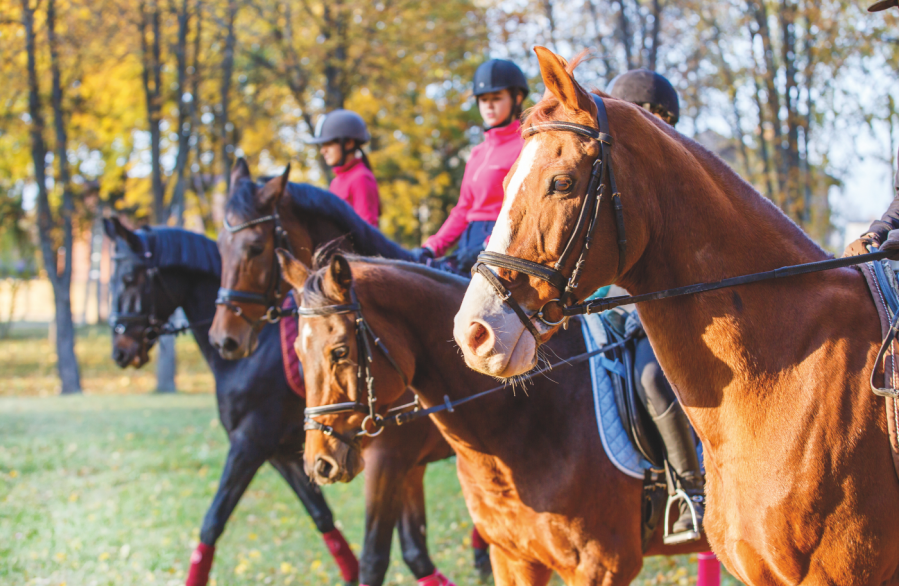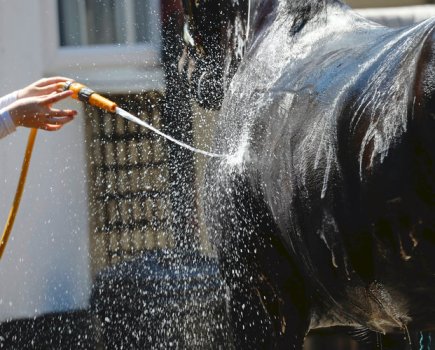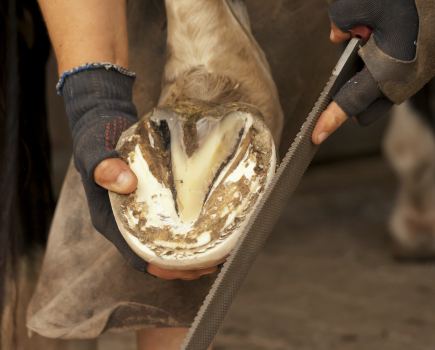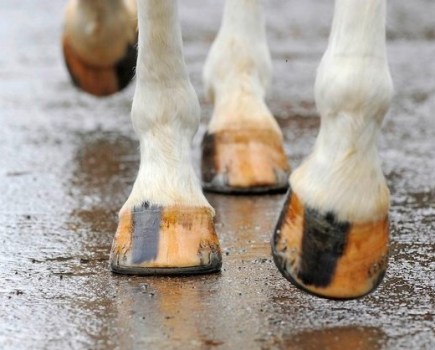Sometimes attempts to help a horse lose weight stall and finding ways to maintain a healthy waistline fail, despite our best intentions and careful management of their diet and exercise routine.
Caring for our horses and ponies with the aim of reaching and maintaining a healthy body condition can be a challenge. The summer months can be particularly tricky to navigate for those that are naturally good doers. However, weight loss during this period is possible with the right nutrition and management plan in place.
What is a horse’s energy balance?
Our horses’ current body condition and changes in their body weight are a direct result of their energy balance. Every day, horses consume energy from their diet and use energy for normal daily bodily functions and exercise.
If more calories are being ingested than are used, this surplus energy will result in weight gain. Conversely, to achieve weight loss our horses need to be utilising more energy each day than they are eating.
If weight loss isn’t occurring despite our best efforts and current feeding and management plan, there are two different approaches we can take to move towards a negative energy balance and resulting weight loss:
- Increase the amount of energy our horse is using through exercise, by riding them more often and/or in a way that burns more calories; or
- Reduce the amount of energy in their daily diet.
When might weight loss stall?
Bear in mind that grass is only part of our horses’ overall diet. In the summer, it is likely to be the largest contributor in terms of energy and volume. However, it is always worth reviewing the diet plan as a whole if progress towards weight loss goals has stalled.
We must also consider the amount and nutritional value of any hay or haylage which is being fed. The nutritional content of hay and haylage can vary greatly, and it is important to choose a forage source which is suitable for good doers.
Forages that are low in protein, sugar and digestible energy, with a higher proportion of non-digestible fibre are ideal.
Is hay lower in energy and sugar?
Contrary to popular belief, hay will not always be lower in energy and sugar than haylage. The best way to understand exactly what your horse is eating, and if their current forage is suitable, is to have your forage analysed.
This service can be hugely valuable in helping you to work towards your horse’s weight loss goals, with some companies offering not only numerical results but follow up advice and assistance in diet planning from their expert teams.
Soaking hay for between three and six hours can help to reduce its water-soluble carbohydrate (sugar) content.
Is a restricted diet balanced?
It is important to note that in the UK a forage-only diet is very unlikely to be meeting all your horse or pony’s essential daily vitamin and mineral requirements, even during the summer months when the nutritive content of the grass is higher.
UK grass, hay and haylage tend to provide insufficient amounts of vital nutrients such as copper, manganese, zinc, selenium, iodine and B vitamins year-round. As such, it is important to provide a minimum of a vitamin and mineral supplement alongside a forage-based diet.
A balancer specifically formulated for good doers can be a great low-calorie way to meet your horse’s daily vitamin and mineral requirements while also providing a range of support supplements tailored to their needs such as hoof, digestive and immune support.
Nutritional value of food
When working towards weight loss goals, it is important to understand the nutritive value of any products you are feeding.
Short chop fibre (chaff) products will often be fed alongside a balancer or vitamin and mineral supplement. However, these too can vary greatly in their nutritional content and the type of horse or workload which they are suitable for.
If you are unsure if any components of your horse or pony’s current diet are potentially hindering their weight loss progress, contacting your feed company to discuss their feeding plan can be a hugely useful resource.
Getting energy from food
When considering dietary energy intake, it is important to remember that for the majority of good doers their forage intake will contribute far more of the total dietary energy than the complementary products which are being fed. It is therefore key to manage both aspects of the diet to achieve weight loss success.
All horses and ponies are individuals and should be treated as such. It is great to learn what may have worked or is currently working for others, however this may not be what also works for you and your horse.
If you are unsure, feel stuck in a rut when it comes to your horse’s weight loss progress or overwhelmed by the amount of information, variety of products or different opinions out there, your feed company’s helpline can be a great place to seek advice from nutrition experts.
Why weight management is vital
While the spring and summer months may be challenging when it comes to weight loss, these are also the months during which the risk of laminitis is highest.
Obesity is the most influential nutritional factor that increases the risk of laminitis, and also raises the risk of endocrine and metabolic disorders such as equine metabolic syndrome (EMS).
It is therefore vital to manage body condition during this high-risk season, and to use the autumn and winter to our advantage in achieving optimum body condition in preparation for the spring and summer.
Asking for help
Despite careful planning and management, sometimes we can find that our horse is still not losing weight, or progress has stalled. I have discussed some tweaks here which you may be able to make to your current routine and feeding regime to help you progress towards your horse’s weight loss goals.
Whenever we face weight loss challenges, advice can be sought from your vet, your local feed merchant or your feed company. Your feed company’s helpline is a fantastic resource for advice and information is tailored to your horse’s individual needs.
Main image: copyright Shutterstock
![]() Have you heard about Your Horse’s #FitNotFat campaign? Equine obesity is an enormous welfare problem and we’re on a mission to provide owners and riders with the knowledge, skills and information you need to keep your horse in tip-top health. It could be life saving! Find out more
Have you heard about Your Horse’s #FitNotFat campaign? Equine obesity is an enormous welfare problem and we’re on a mission to provide owners and riders with the knowledge, skills and information you need to keep your horse in tip-top health. It could be life saving! Find out more








